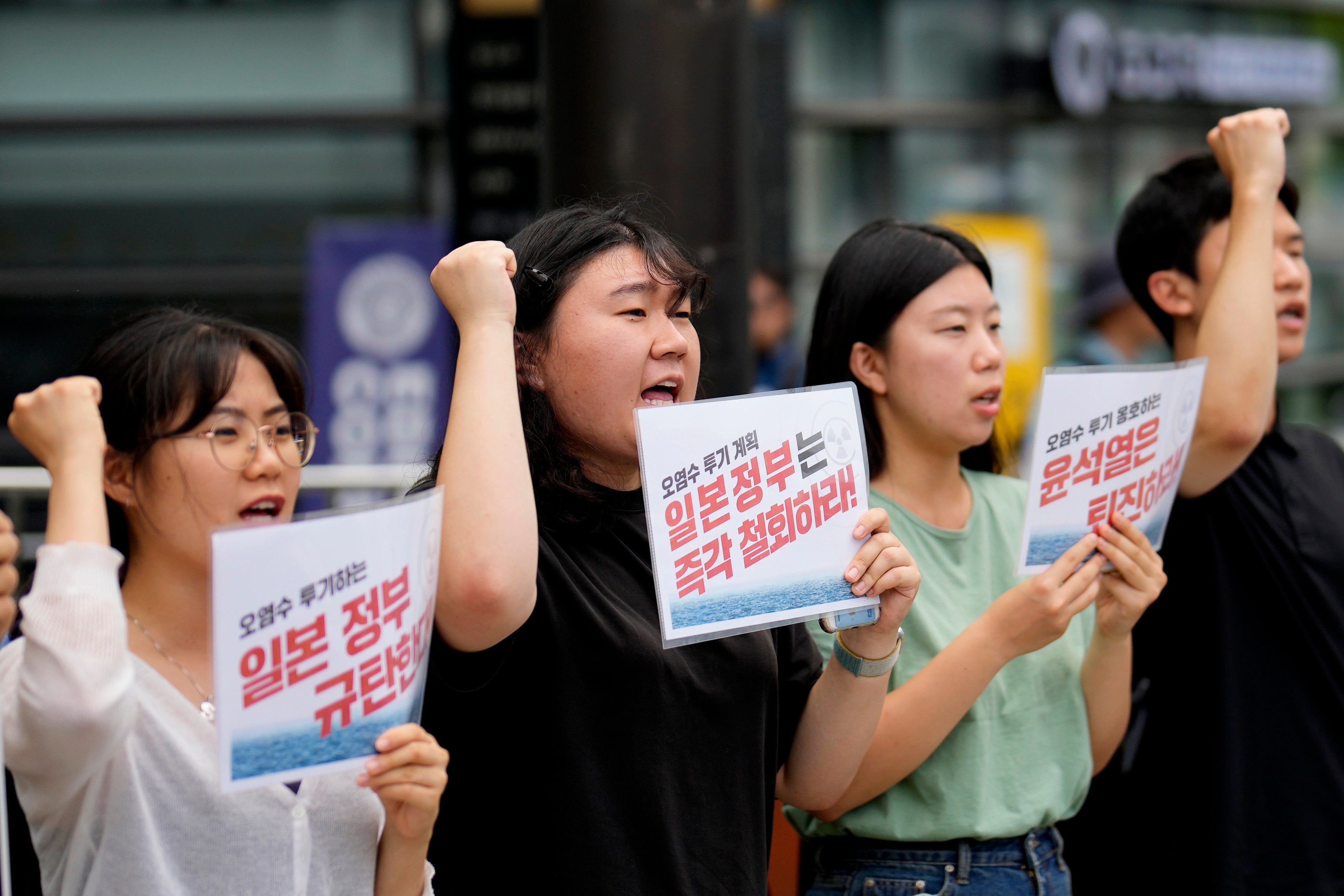China upholds ban on food imports from Japan over ‘safety’ fears after Fukushima review
China has voiced strong opposition to Japan’s move to discharge treated radioactive water
Your support helps us to tell the story
From reproductive rights to climate change to Big Tech, The Independent is on the ground when the story is developing. Whether it's investigating the financials of Elon Musk's pro-Trump PAC or producing our latest documentary, 'The A Word', which shines a light on the American women fighting for reproductive rights, we know how important it is to parse out the facts from the messaging.
At such a critical moment in US history, we need reporters on the ground. Your donation allows us to keep sending journalists to speak to both sides of the story.
The Independent is trusted by Americans across the entire political spectrum. And unlike many other quality news outlets, we choose not to lock Americans out of our reporting and analysis with paywalls. We believe quality journalism should be available to everyone, paid for by those who can afford it.
Your support makes all the difference.China has announced that it will uphold the ban on the import of food from approximately one-fifth of Japanese prefectures due to safety concerns, citing Japan’s move to discharge Fukushima water into the sea.
In a statement on Friday, Chinese customs said it would also strictly review the documents for food, especially aquatic products, from other parts of Japan.
The move was to prevent the export of radioactive contaminated Japanese food to China and protect the food safety of Chinese consumers’ imports, China said.
China, the largest buyer of Japan’s seafood exports, has voiced strong opposition to Japan’s move to discharge treated radioactive water from its crippled Fukushima nuclear plant into the Pacific Ocean.
The move comes after the UN nuclear watchdog, the International Atomic Energy Agency, this week gave Japan the green light to begin discharging more than a million metric tons of water used to cool the plant’s fuel rods after it was wrecked by a 2011 Japanese tsunami.
China customs said the report did not fully reflect the views of all the experts involved in the assessment process, and the conclusions were not unanimously endorsed by the experts.
The proposal to release the water, which was used to cool the reactors before being treated and stored in huge tanks around the site, raised concerns not only in China, but also among Japan’s neighbours and many Pacific island nations, which are still dealing with the legacy of nuclear weapons testing.
However, Seoul has now said on Friday that it believes, based on an inspection of the plant in late May, the release of water meets international standards if it was carried out as detailed in the proposal.
“We have confirmed the concentration of radioactive material meets standards for ocean discharge … and therefore, the plan meets international standards including those of the IAEA,” Bang Moon-kyu, minister of the office for government policy coordination, told in a briefing on Friday.
Japan received greenlight from IAEA after a a two-year safety review, in which the agency said Japan would dilute the water before discharge to bring the level below regulatory standards, adding that its experts would be stationed at Fukushima for any release, which is expected to take decades.

Some countries, however, have raised concerns over contamination, especially around the potential risks from the radioactive isotope tritium, which is difficult to remove from water.
Addressing these concerns, the Society for Radiological Protection, said in a statement that the IAEA verdict was “entirely justifiable” and the water could not pose risk to human health.
“The IAEA verdict is entirely justifiable as the discharges of tritiated water will be similar to those from Fukushima before the accident in 2011. They are also substantially less than routine discharges from some other nuclear installations, including Sellafield in Cumbria and Cap La Hague in France,” it said.
“As concluded by IAEA, there should be no concerns that these operations could in any way affect human health or the environment.”




Join our commenting forum
Join thought-provoking conversations, follow other Independent readers and see their replies
Comments